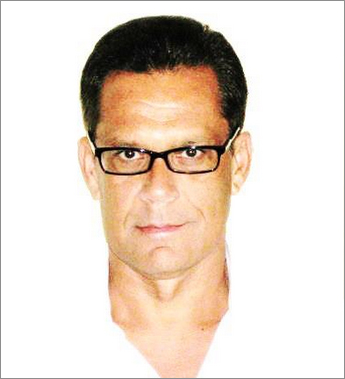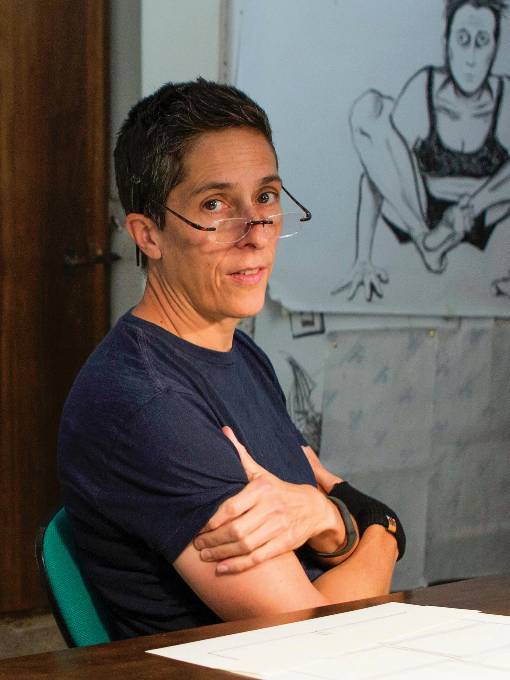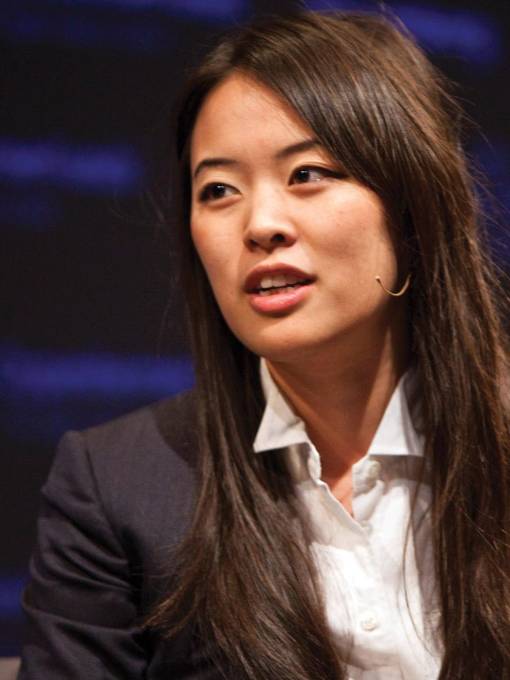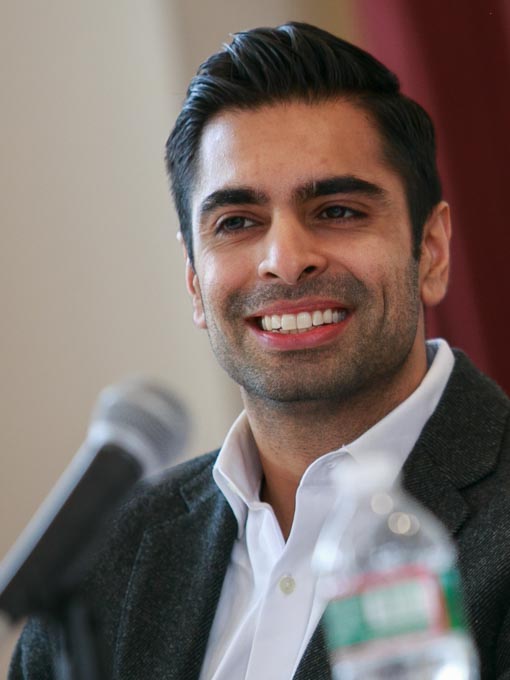Doing Well By Doing Good
Edward "Ted" Siedle '74
A Whistleblower Wins Justice and Success
Simon’s Rock planted the seeds of Ted's belief that young people must take risks to lead a satisfying life.
The institution is of course Simon’s Rock Early College, as it was known at the time.

The protagonist is Edward “Ted” Siedle, ’74, president of Benchmark Financial Services and a resident of Ocean Ridge, Florida. As Ted describes his life, he makes clear that Simon’s Rock planted the seeds of his belief that young people must take risks to lead a satisfying life. His success in uncovering incompetence in pension fund management has also convinced him that to do good requires a healthy dose of self-interest: “Sure, do good, but you can do greater good by doing well for yourself.”
“I Thought, ‘There’s Hope After Death’”
“I went to Simon’s Rock in the worst of circumstances,” Ted said. “It was the only solution to an impossible situation: I was orphaned, penniless, and without a high school education,” adding that he had lived with his father since his parents divorced when he was an infant. “I arrived in Great Barrington on a beautiful sunny fall day and I thought, ‘there’s hope after death.’ At last I didn’t have to deal with the looming question of ‘where are your parents?’ Simon’s Rock was a wonderfully positive experience.”
Ted’s father, Robert Siedle, was a sociologist who lectured at Makerere University in Kampala. Ted lived with him in Africa, attending school intermittently. In 1971, when Ted was 17, Robert Siedle and an American freelance photographer went to investigate rumors of a tribal massacre in the Ugandan bush. They never returned. A Ugandan judge declared that the two were presumed to have been murdered, a ruling so risky under the murderous Amin dictatorship that the judge fled the country in the trunk of the U.S. ambassador’s car. But his ruling eventually enabled Robert Siedle’s estate to go to probate, the legal process that provided Ted with the means to attend Franklin Pierce College and Boston College Law School after Simon’s Rock.
A Silent Whistle and Meeting a Murderer
After earning a law degree, Ted went to work for the U.S. Securities & Exchange Commission. He spent three years in the division that regulates money managers and mutual funds. There Ted discovered his knack for forensic investigation, which requires mathematical aptitude and single-mindedness in detecting wrongdoing amid voluminous financial records. He then joined a major mutual fund complex as in-house counsel and director of compliance, but discovered that his superiors failed to act on his discovery of financial mismanagement. In 1988, he says he “blew a silent whistle,” reporting the matter confidentially to regulators—a fact that was unknown to the general public until 15 years later, when New York Attorney General Eliot Spitzer took action against the company.
After concluding that the corporate path was not for him, Ted set off on his own, personally and financially. He was determined to learn the circumstances of his father’s death. Research and questioning took him back to Uganda, which had returned to civil stability since the demise of the Amin dictatorship. Ted learned that Robert Siedle and the photographer had been providing information to the Central Intelligence Agency. Their trip to investigate a massacre led to their capture and murder by Amin’s henchmen. Ted’s investigation ultimately involved a visit to the Kampala prison in 1997. There he met one of the person’s responsible for his father’s murder, serving a life sentence for his crime.
Awards and the Possibility of Providence
Ted’s career as an independent financial investigator has involved dozens of whistleblower claims, mostly with the SEC. In 2015 JPMorgan Chase paid $367 million to settle claims it had disclosed a conflict of interest—it was sending clients to its own house mutual and hedge funds. In 2017, the U.S. Securities and Exchange Commission Office of the Whistleblower, which awards whistleblowers with a portion of monetary sanctions, awarded Ted $48 million, the largest whistleblower award in history. In 2018, Ted was awarded an additional $30 million.
Ted’s attitude to mismanagement comes across in his Forbes column and his professional findings. Investigating the poor performance of public employee pension funds in Rhode Island, Ted wrote in Forbes in 2013: “[T]oday Rhode Island’s leading investment fiduciary is largely compensated by an out-of-state hedge fund investor—worse still, she is paid indirectly and secretly.”
Three Benchmark investigations, the first at the behest of Rhode Island public union members and the next two crowdfunded, failed to impede the political progress of the state treasurer, who is now governor. She disputes the findings of Ted’s investigations, although the pension funds are no longer vested in the hedge funds that Ted accurately predicted would lead to massive losses—about $500 million. But the employees’ unions in the meantime have urged Ted to run for Rhode Island attorney general. As much as he loves the warm weather of Florida, he admits to mulling over the possibility of life in Providence.
Simon’s Rock and the Importance of Being Unconventional
Ted is more forthright on the subject of education, specifically, the stress that high school students face today. He and his wife Tamara have two children, 13 and 16. He believes students, facing a job market that is radically different from any in past decades, should approach education as a means to acquire the intellectual and emotional flexibility necessary to identify professional opportunities. To do otherwise—“hoping for secure lifetime employment with a company that soon won’t exist” obscures the point of learning.
“Students are being burned out by relentless pressure. It’s unhealthy; everyone’s scared to death … Where’s this headed? Your kid gets into Harvard; then what?” Ted compares what he calls “the hyper focus on traditional benchmarks—conventional success” with the open-mindedness he found as a student at Simon’s Rock, “where you commit to being unconventional. I’d like to see that continue; there are alternatives to traditional education.”
Ted believes the solution to anxiety over education and careers lies in how young people should be encouraged to embrace risk. He is convinced the qualities of entrepreneurship can be taught. His talk of resilience and persistence sounds at times like the novels of Horatio Alger, the nineteenth century popular novelist whose heroes gained success through grit and pluck. But Ted notes that fear of failure plays a big part in the process. “What scared me was realizing that the better I did my job, ferreting out wrongdoing, the less secure my employment would be. Becoming an entrepreneur was actually less risky.”
“My wish for every graduate is that you never need a resume. Find something you really care about and become really good at whatever it is. Create your own life’s work. Forget about what looks good to an employer.”




